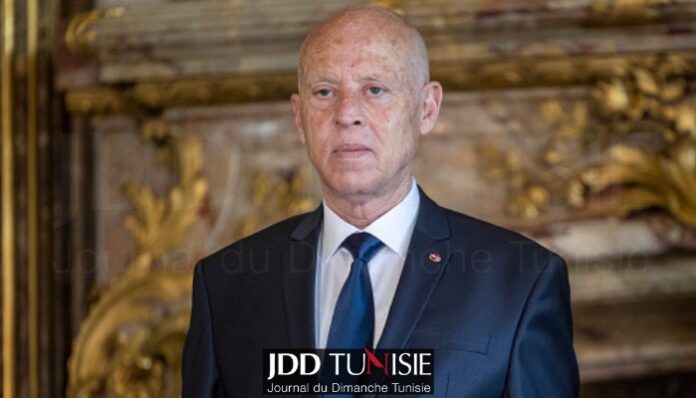A new phase has been in tunisia since the evening of Monday, September 20, 2021, when the President of the Republic announced “the continuation of the revolution”, revealing his intention to issue transitional provisions that could change the features of the system and the political system.
Decree of Mbazaa: The First Turn Transitional provisions or the temporary organization of power to the public are used when the constitutional order becomes inadequate with the general situation due to landmark historical moments, such as revolution, coup d’état or a major political transformation, i.e. events in which pension development becomes unable to manage the political issue and the new reality, according to constitutional law professor Abdul Razzaq Mukhtar. In the recent past, the Tunisian revolution produced an identical experience with the issuance of Decree No. 14 of 2011 dated March 23, 2011, on the temporary regulation of public authority, under which the House of Representatives was dissolved following the suspension of the then constitution.
“During the 2011 January 14 revolution, the people expressed the will to exercise their full sovereignty under a new constitution, and since the current state status, after the final vacancy of the presidency on 14 January 2011, as approved by the Constitutional Council in its declaration of the official leader of the Tunisian Republic dated 15 January 2011, no longer allows for the normal functioning of the public authority, and it has become impossible to fully implement the provisions of the Constitution,” the decree said. According to this decree issued by interim President Fouad Al-Mebaza, the “revolution” abolished the 1959 system, as this text was not based on the Constitution but on the “will of the people” as stated in its introduction.
This decree issued “in the name of the revolution” away from any constitutional legitimacy spent by one of the figures of the system because he was considered speaker of parliament at the time of the fall of the regime, noting that the decrees in general are of a mixed nature, they take on the one hand some elements of the law, as they are provisions relating to the area of laws, i.e. the area of legislative power, It takes some characteristics of the orders as they are issued by the President of the Republic. Decrees are legal provisions taken by the President of the Republic in the area of law, in three cases during the parliamentary recess, if parliament delegates certain powers to the President of the Republic and, finally, if parliament is dissolved. Saied announces the end of the system More than 10 years later, president-elect Qais Saeed’s speech comes from Sidi Bouzid, “the cradle and capital of the revolution,” and rekindles controversy over the modification of the compass and the correction of the revolution, which he considers to have aborted on January 14th by the former president’s escape from the country. In this speech, Said talks about changing the “system”, a new electoral law and transitional provisions amid the hazy fate of the legislative council, which froze its terms of reference by adopting a presidential order issued by the official leader on July 26, 2021.
In the following hours, constitutional law professors presented contradictory, contradictory and complex constitutional readings of the president’s upcoming steps, particularly on the mechanisms for dissolving parliament in the absence of its legal and constitutional requirements, and how to go to a referendum.
“Tunisia is now in a state of exception, and this situation is governed by special rules and principles, and if necessary, the President of the Republic is free by activating chapter 80 of several constitutional and legal constraints, in addition to that the people are supporting Said’s decisions and in front of the will of the people, the constitution is worth nothing,” said Saghir Al-Zakrawi, director of the Public Law Department at the Faculty of Law and Political Science in Tunisia. “The state of necessity does not have a law governing it, and necessities allow for the preparations, i.e. it is possible to work without a parliament or a constitutional court at this exceptional time,” al-Zakrawi said, noting that the old system is not reformable from within, as the system has provided corruption, money smuggling and the collapse of the state, and talk of the return of parliament has become a mob talk.
” Constitutional law professor Abdul Razzaq Mokhtar, on the other hand, says the president will hold the legislative power under transitional provisions through decrees. Saied will be the first political figure to change the system with the same system mechanisms and the decrees will be the fuel of Tunisia’s governing machine.
Rifi-JDD








